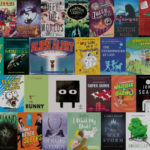“You grow more when you get more people’s perspectives.” ~ Mark Zuckerberg
One of the most rewarding parts about writing my new book, The Kickstart Guide to Making Great Makerspaces (Fall 2017), was the opportunity to highlight and feature GREAT Makerspaces all around the world. I recently interviewed some of the people behind these spaces to provide us with the opportunity to take a deeper dive into their amazing work. I would like to thank Dodji Hanou of the DefkoAkNiep Makerspace in Senegal, Gabriela Augustini of the Olabi Makerspace in Brazil, Miracule Gover of the Tuce Makerspace in Ghana, and Marco Mout of the Walhallab in the Netherlands for taking the time to answer my questions. I am thrilled to say that I now consider all of these people valued friends and colleagues that I learn from on a daily basis and I cannot thank them enough for their contributions. It is my hope that their insight will allow us all to see Makerspaces from other perspectives and to learn and grow from what is being done in other parts of the world.
Senegal
Where is your Makerspace? In a school, college, public space in the community?
My Makerspace (FABLAB) is in the community, created by an NGO here in Senegal.
What is the name of it?
DefkoAkNiep (Do it with everybody) it in Local language (Wolof).
Who started it?
It was initiated by a NGO named KER-THIOSSANE.
Who runs it?
I have been the manager since the opening day.
When did it open?
March 2014.
Who attends Senegal?
We have more than 70 adults members. For kids, we go to some primary schools each week to provide training.
What kinds of things do you have in your space?
We have electronics, a CNC machine, a laser cutter, a 3D printer, hand tools, and computers.
What kinds of things do you do in your space?
We provide training for kids, entrepreneurs, craftsmen, students, artists, and engineers. We make prototypes with entrepreneurs and others to develop energy solutions based on solar panels and wind turbines. We also organize trainings on how to build a solar panel from solar cells.
Are there other Makerspaces in your country?
There is no formal Makerspace (as described or based on US model) in the country (Senegal) where I live, but there are lot of makers who make things at home or in their garage. You can find makers everywhere in the country.
Can we do anything to help or support your space?
Yes, if you have resources (books, materials, interesting projects to share or organize with us). We need to learn more from what is done in other parts of the world. If you have travel opportunities for an event, that would be a great for us to learn from our peers. We are a non-profit organization, with limited financial resources, if you have any funding opportunities that would be very helpful.
Ghana
Where is your Makerspace? In a school, college, public space in the community?
The Tumu College of Education Makerspace (TUCE Makerspace) is located on the college premises. Tumu is located in the Sissala East District of the north-western part of Ghana in the Upper West Region. Tumu is the administrative district capital in Sissala East.
What is the name of it?
TUCE Makerspace.
Who started it?
NOVAN Education & Training led by Miracule Gavor.
Who runs it?
The teaching staff of Tumu College of Education.
When did it open?
March 2017.
Who attends?
Adults made up of pre-service teachers and college tutors.
What kinds of things do you have in your space?
Work benches, computers, printers, art tools, carpentry tools, electronic tools, and storage boxes.
What kinds of things do you do in your space?
Design and create manipulatives for teaching early grade numeracy and literacy (reading).
Are there other Makerspaces in your country?
Yes, other Makerspaces exist in name, but they are inactive.
Can we do anything to help or support your space?
We look forward to collaboration and to expand our global reach. Any effort that promotes networking sharing of valuable data and resources to improve the Makerspace activities are most welcome
Is there a website or social media page for your space?
No, it is under construction. It should be alive in May 2017.
What else can you tell me that I might have forgotten to ask?
How is the Makerspace funded? Currently, Transforming Teacher Education and Learning, a donor sponsored (Department for International Development DFID UK) activity provided a grant through a Challenge Fund to support the establishment of the TUCE Makerspace.
Brazil
Where is your Makerspace? In a school, college, public space in the community?
Our Makerspace is independent, its a social organization (like NGO) in Rio de Janeiro.
What is the name of it?
Alibi Makerspace.
Who started it?
I founded it with Isabelle Goldfarb (my co-founder).
Who runs it?
I am the executive director, Silvana Bahia is the program director, and Iana Barenboim the director of operations. We also have an advisory board with 3 members and a team of 3 more people (plus some freelancers we invite to work on projects and lead workshops).
When did it open?
March 2014.
Who attends?
Our audience is pretty diverse. We used to have a kids’ program with 4 groups of 15 people every week. Now we have kids attending for special occasions (helping schools, museums, and other spaces to organize their own programs to them). We are more focused on adults than kids, but we still work with kids (especially in the second space we have inside a NGO space in a favela, located in front of a children’s school).
What kinds of things do you have in your space?
Electronic components, sewing machines, a laser cutter, 3D printers, a biolab, carpentry tools, a small cnc, a lot of crafts, and general stuff.
What kinds of things do you do in your space?
Workshops, lectures, meetings, people using the machines and components etc. Our main course is called Costura High Tech (a combination of traditional sewing techniques with some innovation in fashion like 3D printing textile, wearables, electronic textile etc).
Are there other Makerspaces in your country?
Yes. In Rio there are Makerspaces inside schools, universities, and also another fablab inside a trade school. In SP, the biggest city in Brazil, for example, there is one of the biggest public policies focused in maker movement in the world: the municipality manage 12 public fablabs in the city of SP. There are fablabs in every region of the country, the network is growing pretty fast.
Can I do anything to help or support your space?
Yes!! Visibility is always important. Our main challenge is fundraising, as you can imagine. For that, international network and visibility is super important. So, whatever you could do to promote us (and connect us with institutions that help this kind of initiative would be amazing).
Is there a Website or social media page for your space?
Olabi Facebook
Olabi Makerspace Facebook Group
Olabi Makerspace Instagram
Olabi Makerspace Flickr
What else can you tell me that I might have forgotten to ask?
Apart from the Makerspace, we are a think tank focused on bring diversity to the production of technology, trying to show to the people that technology is something you can also produce and not just consume. Empowerment of women is something important for us. Our business model is hybrid, based in grants of international foundations (like Ford Foundation), offering some paid programs to general audience and also helping other organizations to start their own space or program related to maker movement.
Netherlands
Where is your Makerspace? In a school, college, public space in the community?
Actually, we experience the (hard-earned) luxury of two amazing venues next to each other! A 700 yrs old defense tower ‘De Kruittoren’ (Gunpowder Tower) and a new 1400m2 space in medieval Hanseatic city, Zutphen, in the Netherlands. Marco Mout was able to obtain this tower in 2003 and spent many years and much private money to restore this national monument. In the meantime, it was open for young people to work on their creative skills. Emphasising the development of talents, it’s considered the oldest private makerspace in the Netherlands, even in Europe.
What is the name of it?
After many years as MaakPlaats de Kruittoren, recently the name was changed into WALHALLAb, a mix of the word WALHALLA as in paradise and lab as in laboratory. The funny name draws interest and actually describes the places the best.
Who started it?
Marco Mout started the concept after an international career in media, since he was convinced kids needed more learning, physical and social challenges and Makerspaces they would maintain and design themselves.
Who runs it?
Marco Mout and his 15 person strong team of young and old professionals/volunteers in the fields of tech, design, skills, pedagogics, psychology, and new technologies.
When did it open?
August 2003.
Who attends?
Mostly youngsters age between 6 and 20, from all walks of life, backgrounds, and social situations. Our WALHALLAb is in no way only a Makerspace, since we also coach youngsters with a sometimes very difficult personal situations, drugs use, autism, ADHD, and such. They make up for 50% of our students. This unusual mix works very well.
What kinds of things do you have in your space?
We enjoy the luxury of having almost everything. From scrap metal to the most luxurious wood species. From Polyurethane sheets to sewing machines. From professional chainsaws to 3D printers (which we outsourced). From painting stuff to welding equipment, etcetera.
What kinds of things do you do in your space?
We design, create, build, paint, develop, glue, weld, solder, everything thinkable or not thinkable. We shy away from limitations. Our sponsors are sculptors, builders, creators, photographers, drone builders, and designers, etcetera. Since we are independent and not financially supported by any means, we have to maintain a high standard of quality in our own products and productivity, with which we earn money to develop the WALHALLAb and the teaching we provide. We work closely together with schools and are currently in the process of starting a course for regular teachers who suffer a burnout to develop new teaching and motivating skills. This draws attention from the ministry of Education. Sponsors of material are very important to us. Great brands like Festool, Stihl, AMR EUROPE (3d Tech) are our partners.
Are there other Makerspaces in your country?
Yes, there are. But, in general, they differ from us in focusing on making as the major curriculum. We consider making a part of our effort to challenge youngsters to develop their talents in many fields and make them aware of their abilities to create wonders.
Can I do anything to help or support your space?
Yes, spread our vision that Makerspaces should also, in the process of making, developing and such, put efforts in getting to know the youngsters, their backgrounds and situations. And don’t let it become a social project, but a world that is comparable with what we call a Magnetspace: you don’t have to push them to join in, they’re drawn to it! And subsequently become better inhabitants of this earth.
Is there a website or social media page for your space?
Sure! Zutphen is situated in the east of the Netherlands, 35km northerly from Arnhem.
Walhalla Facebook
WALHALLAb Twitter
tel 0031 (0)6-13964067
info@walhallab.nl (is somewhat plagued by a new email refusal bug, but will be up and running by May 15, 2017, until this time please mail on info@kruittoren.eu)






